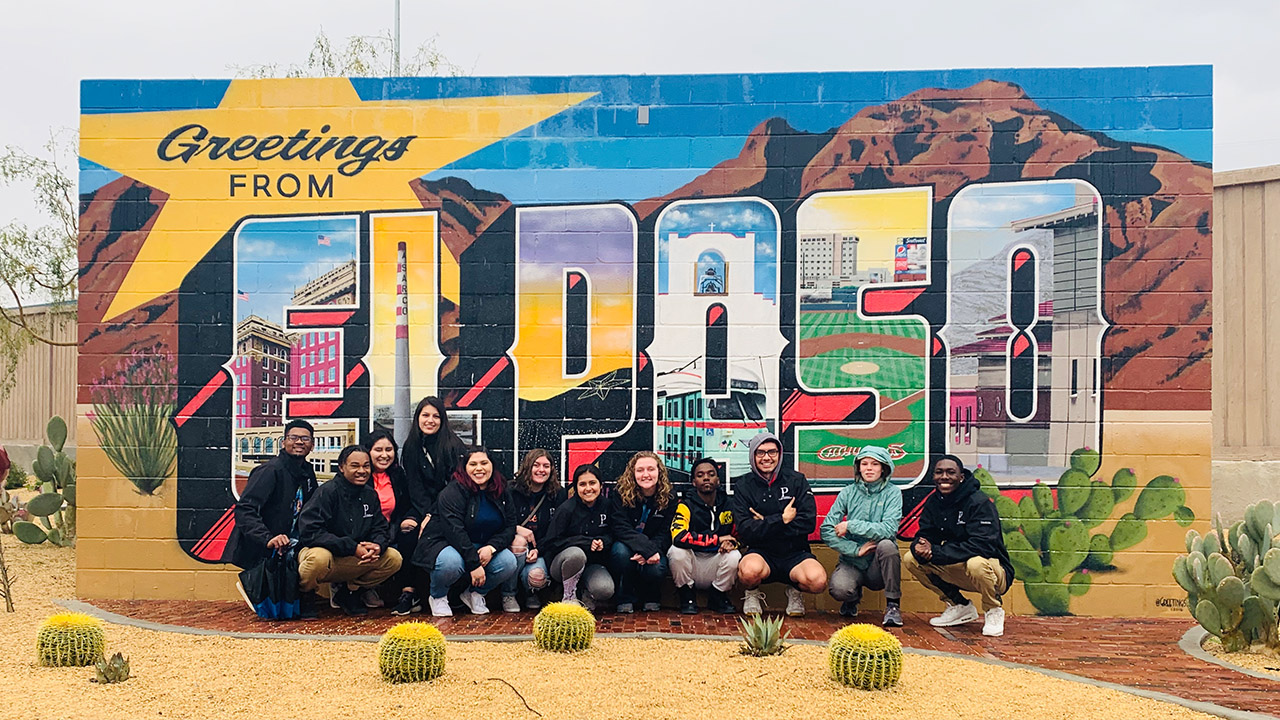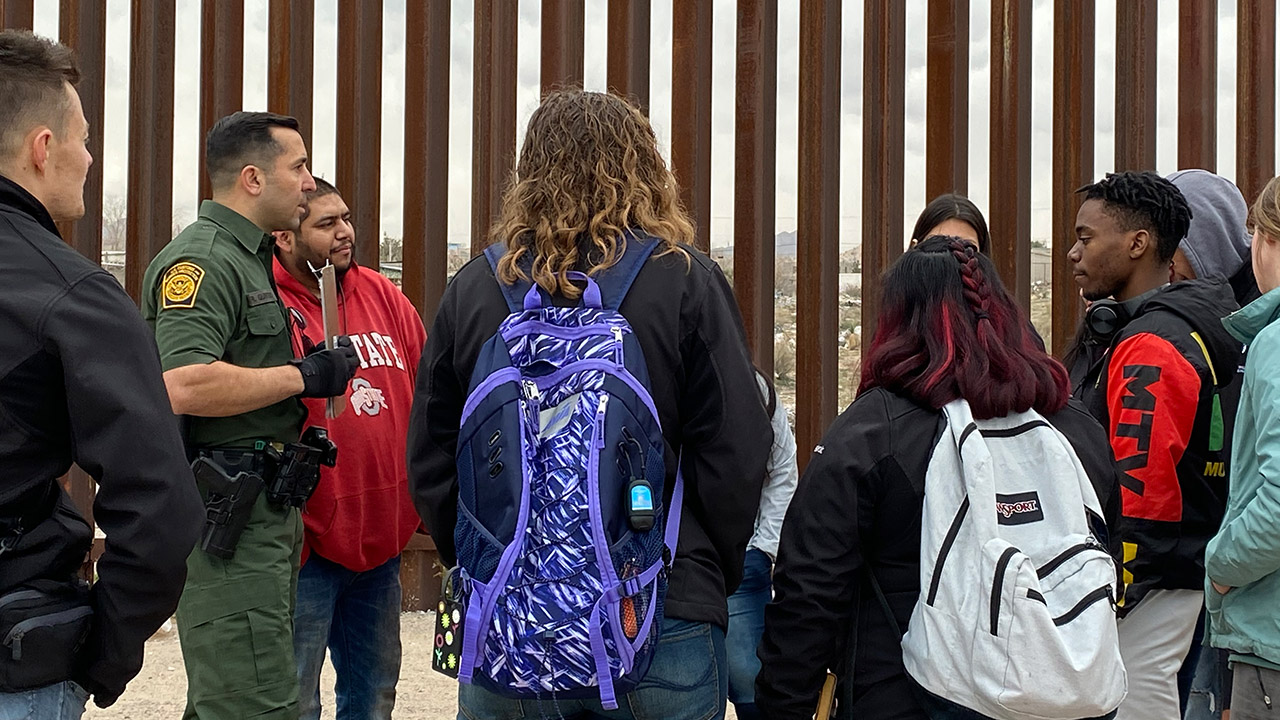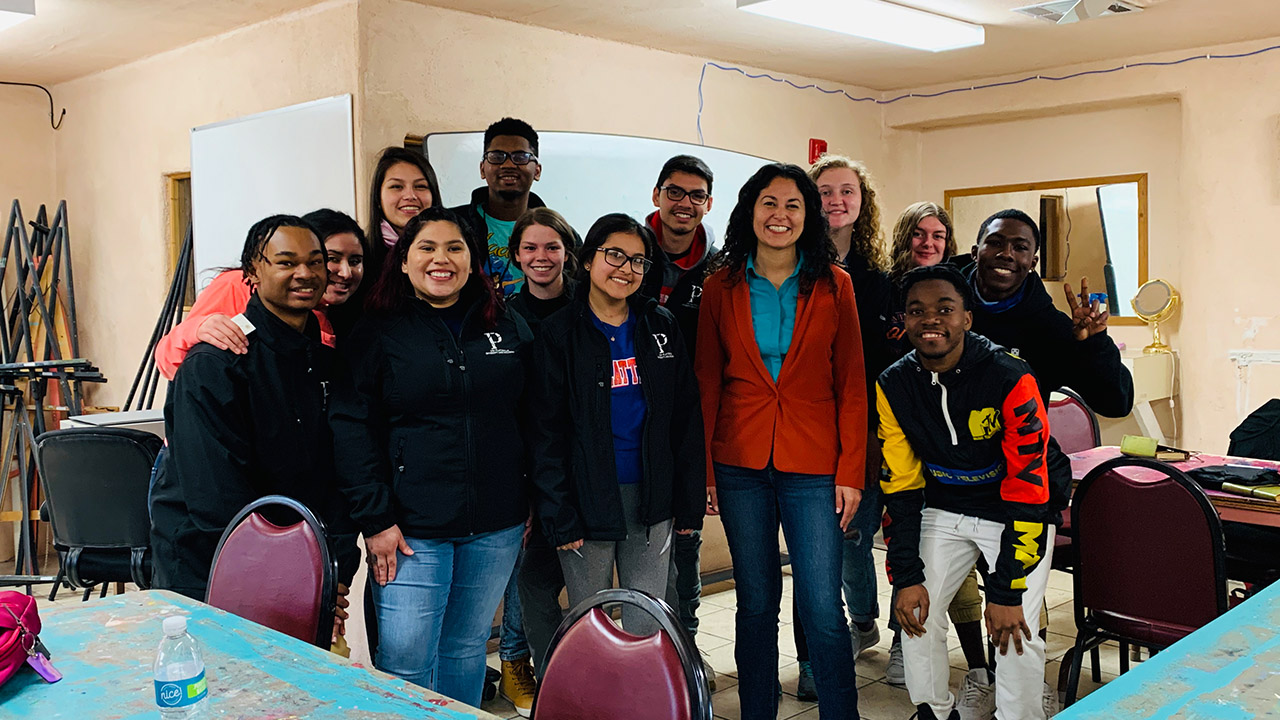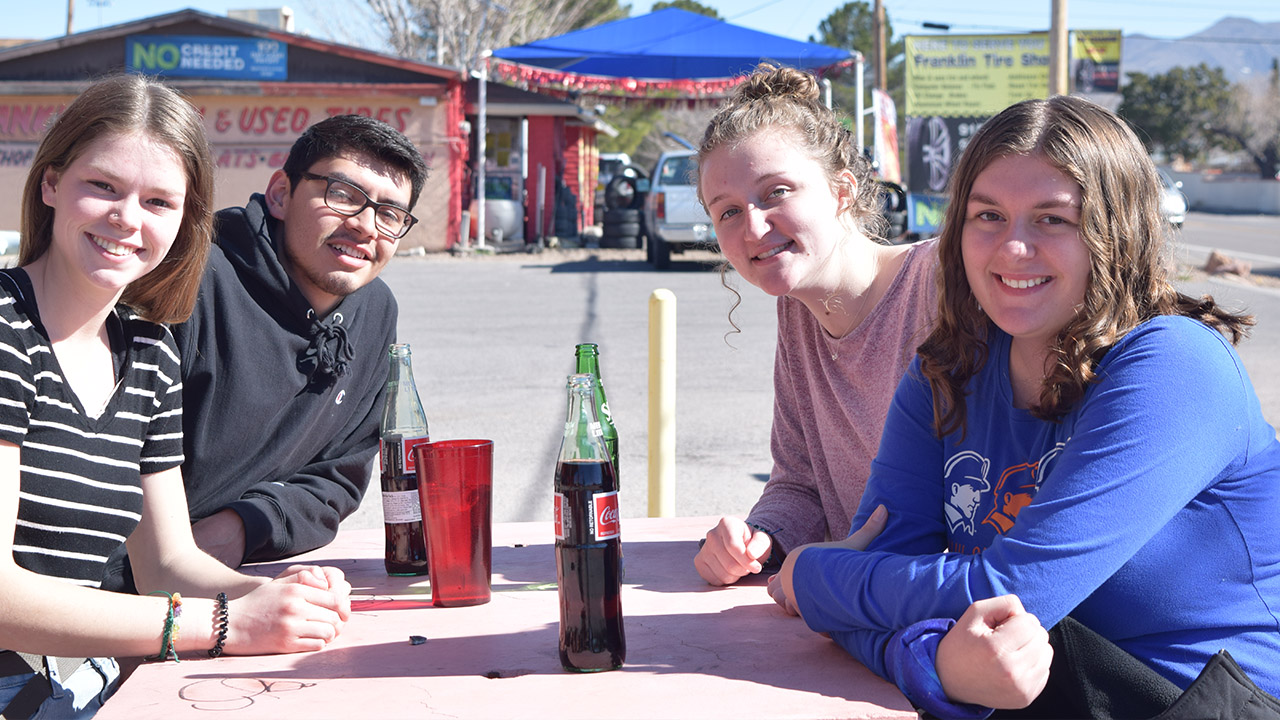



A group of 12 University of Wisconsin-Platteville students recently gained an up close and inside look at immigration policy, culture and complexities at the U.S.-Mexico border when they participated in a Border Immersion Trip to Texas and New Mexico, Jan. 18-26. Organized by UW-Platteville’s TRIO-Student Support Services, Office of Multicultural Student Affairs and the College of Liberal Arts and Education, the experience offered students multiple perspectives to examine, from various federal agencies and grassroots organizations to political representatives and border patrol officers.
“There is so much going on at the border and so much in the news,” said Laura Franklin, executive director of Diversity and Inclusion at UW-Platteville. “It felt like history was happening before our eyes at the border, and we wanted to provide the opportunity for us to have some firsthand knowledge and try to better understand the complexities of life at the border.” In addition to Franklin, the trip was attended by Angela Yang and Andrew Roberts, both from UW-Platteville’s TRIO-Student Support Services.
The students were hosted by Mary Carter, executive director of the Women’s Intercultural Center in Anthony, New Mexico – a city on the New Mexico-Texas state line, fewer than 20 miles north of El Paso, Texas. At the center, they had a chance to interact with a number of community members — something that left an impression on the students, as they learned their personal stories and even helped some of them study for the U.S. citizenship test.
“Mary really resonated with me a lot,” said Alvin Watts, a sophomore business major from Milwaukee, Wisconsin. “After watching all the things they do at the center for people in the community, like helping them with the citizenship test, I really appreciated what they did to make people feel a part of the community.”
Over the week-long trip, the students took a Border Patrol tour; visited a bilingual charter school in Las Cruces, New Mexico; attended the U.S. District Court, where they observed criminal trials that centered around immigration issues; and explored El Paso, Texas. They met with New Mexico U.S. Rep. Xochitl Liana Torres Small, the chief of the U.S. Customs and Border Protection Office of Field Operations, and a representative from the American Civil Liberties Union, among others.
“One thing that stuck out for me on the trip was going to the bilingual school,” said Xavier Nash, a sophomore political science major from Milwaukee, who attended a Spanish immersion school himself for a period of time when he was younger. “It just brought so many connections and memories. I like the way they teach the kids – speaking in Spanish and English, regardless of background. It brought so much happiness and joy to my soul.”
The students’ reasons for participating in the trip varied. Several expressed the desire to gain more information about a topic they have only seen on the news, while others, like Hannah Ruiz, a sophomore English major from Hampshire, Illinois, sought a personal connection.
“I come from a Hispanic background,” said Ruiz. “My dad’s side of the family, and my dad, immigrated here from Mexico. I wanted to understand more and put myself in their shoes to see what the journey was like for them. For me it was a very emotional experience and very eye-opening at the same time.”
Ruiz, like many of the students, agreed that the trip will have a lasting impact on her.
“I definitely miss New Mexico and Texas,” she said. “I felt very at home, and I kind of found a new passion in immigration. I’m studying to be an English teacher, but upon going to graduate school, maybe I’ll do something in immigration, maybe go to law school. I just found myself so inspired and realized that I am capable of making a change and of greatness. I also feel like I can relate to and understand my family a lot more and what they went through and risked to be here.”
Trey Rimmer, a freshman software engineering major from Milwaukee, agreed that the trip changed his perspective.
“My goal going down there was to get back inspired in doing this type of work,” he said. “I had done prior research on the topic of immigration. It was easier in high school because you were given these opportunities, but in college you have to find them yourself. And with my major not correlating directly with anything in social justice, going down there taught me how to go about that. All throughout the trip, no matter who we were speaking to, they told us the importance of listening to who needs the help.”
Some students, like Watts, expressed the desire to use that inspiration on campus. “One thing I’ve noticed now is that I really want to change stuff that happens here,” he said, adding that he hopes to be more involved in organizing events and programming through the Office of Multicultural Student Affairs. “I want to do something to help a bunch of people that come from the same kind of struggle I do.”
“A lot of us didn’t know what to expect,” said Rimmer, who explained that everyone on the trip wore a bracelet or necklace that read, “I am enough.” “I think after coming back and reflecting, we have all realized that we are enough to make the changes that we want to make.”